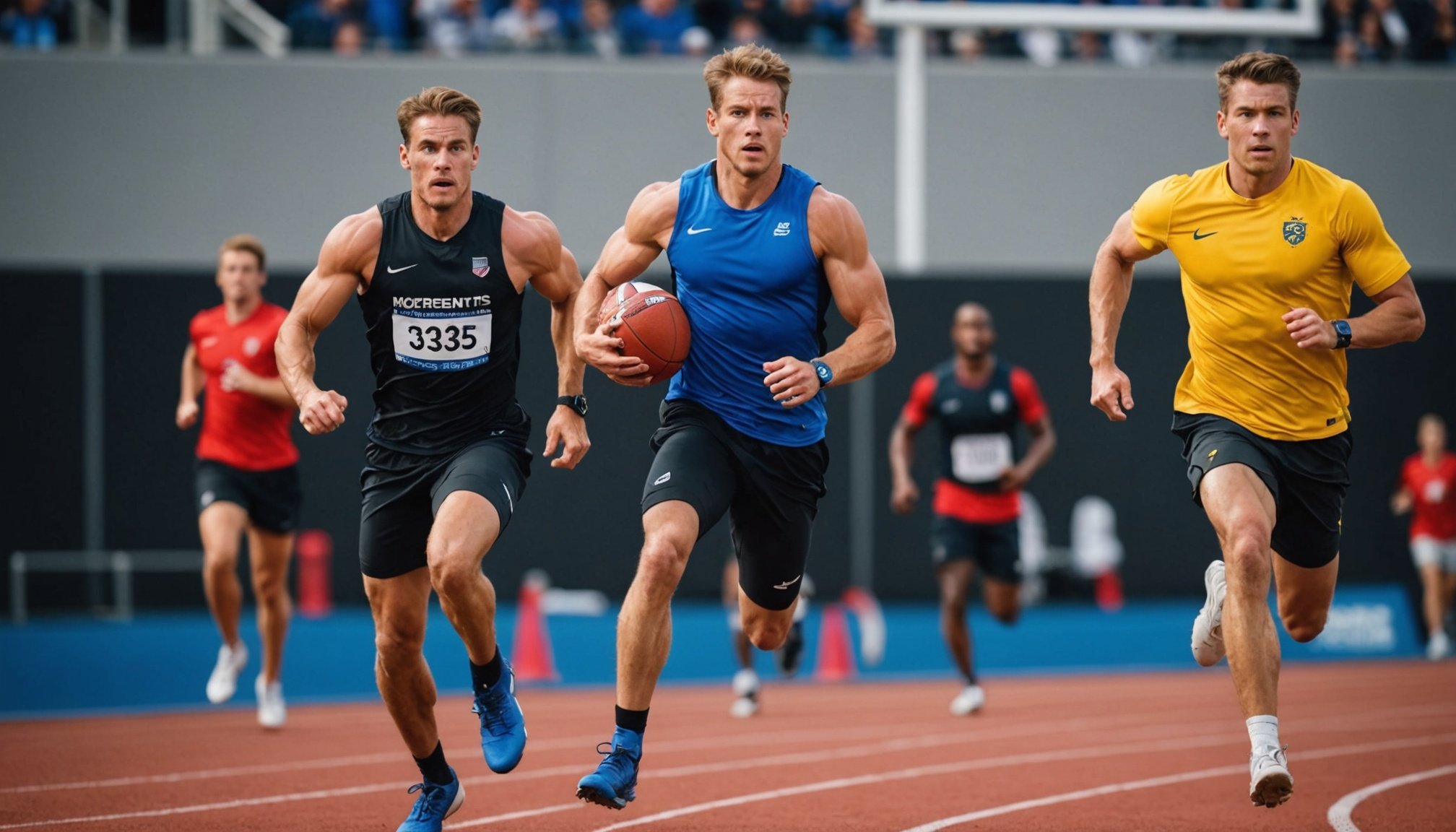Unleashing Mental Toughness: A Comprehensive Athlete’s Blueprint for Using Sports Psychology to Thrive in Global Competitions
Understanding Mental Toughness
Mental toughness is a concept that has been debated and explored extensively in the realm of sports psychology. At its core, mental toughness is the ability of an athlete to perform their job, regardless of the challenges they face. As defined by experts, “mental toughness is the capacity of an athlete to do the job they’ve been trained to do, regardless of what happens to them in training or competition”[1].
This definition is crucial because it makes mental toughness tangible and measurable. For instance, in a real-life example with a professional football team, coaches identified specific situations where mental toughness was essential, such as after a collision, missing an opportunity, receiving a poor decision from an umpire, making a mistake, or experiencing fatigue. By measuring these situations, coaches can create targeted training practices to enhance mental toughness[1].
Also read : Elevate your open water skills: expert training techniques for elite swimmers
The Importance of Mental Preparation
Mental preparation is as vital as physical training for athletes aiming to achieve peak performance. It involves a range of activities designed to build confidence, calm the mind, and prepare strategically for the game.
Building Confidence and Calming the Mind
Confidence building exercises are essential for mental preparation. These can include visualization techniques, positive self-talk, and mindfulness meditation. For example, mindfulness meditation helps athletes manage stress and anxiety, allowing them to stay focused and composed under pressure. Visualization, on the other hand, enables athletes to mentally rehearse their performance, enhancing their confidence and readiness for the game[2].
This might interest you : Maximize your game: harnessing the benefits of plyometric push-ups for rugby athletes
Preparing for the Opponent
Understanding the opponent is another critical aspect of mental preparation. This involves gathering information about the opponent’s strengths, weaknesses, and strategies. By doing so, athletes can develop a game plan that gives them a competitive edge. This preparation helps in anticipating and responding to various scenarios that might arise during the game, thereby reducing anxiety and improving performance[2].
Getting into the Right Mindset to Compete
The mindset of an athlete is pivotal in determining their performance. Here are some key principles to achieve the right mindset:
Letting Go and Trusting
One of the core principles is to let go of the need to control the outcome and trust in oneself. When athletes try to control the result, it leads to stress and tension, which can hinder performance. Trusting in one’s abilities allows athletes to perform more freely and at their peak. As noted, “if you can let go of the need to control the result and simply trust in yourself, that will put you in a great position to perform at your peak”[2].
Overcoming Mental Game Challenges
Athletes often face several mental game challenges that can prevent them from achieving peak performance. These include:
- Sports Performance Anxiety: Anxiety about the outcome can lead to physical tension and inhibit performance. Athletes need to focus on the present moment rather than worrying about the future.
- Fear of Failure: Fear of making mistakes can lead to timid play and a reluctance to take risks. Athletes must learn to view mistakes as opportunities for growth.
- Perfectionism: Striving for perfection can add unnecessary pressure and make it difficult to recover from mistakes. Athletes should aim for excellence rather than perfection[2].
Coaching Mental Toughness
Coaching mental toughness is not just about theoretical concepts; it is about creating practical, measurable strategies.
Identifying and Measuring Mental Toughness
Coaches can identify specific situations where athletes need to demonstrate mental toughness, such as after a collision or a mistake. By measuring these situations through game videos and post-game discussions, coaches can provide feedback that helps athletes improve their mental resilience. This approach makes mental toughness real and coachable[1].
Creating Challenging Training Practices
To enhance mental toughness, coaches should create training practices that mimic and even exceed the challenges of actual competition. This can include simulated game scenarios, intense physical training, and mental preparation exercises. By making training more demanding than the competition, athletes can build the mental strength needed to perform under pressure[1].
The Role of Friendly Competition in Training
Friendly competition during practice is a powerful tool for improving performance.
Forces You to Get Better
Competing against teammates pushes athletes to improve their skills. For example, a baseball hitter facing the best pitcher on the team will be forced to adapt and improve their hitting skills. This continuous challenge helps athletes push past their limits and strive for excellence[5].
Highlights Weak Areas of Your Game
Friendly competition also highlights the weak areas of an athlete’s game. By identifying these weaknesses, athletes can focus on improving them, leading to overall better performance. This approach helps athletes view challenges as opportunities for growth rather than setbacks[5].
Mental Skills Training for Young Athletes
Young athletes can also benefit significantly from mental skills training.
Building Confidence and Focus
Programs like “The Mentally Tough Kid” course teach young athletes tools and techniques to increase self-confidence, improve focus, manage mistakes, and boost motivation. These skills are essential for young athletes to develop a strong mental foundation early in their careers[5].
Developing Mental Resilience
Mental resilience is critical for young athletes to handle the pressures and setbacks inherent in competitive sports. By teaching them how to manage stress, overcome fear of failure, and maintain a positive mindset, coaches and parents can help young athletes build the mental toughness needed to succeed in the long term[4].
Practical Insights and Actionable Advice
Here are some practical insights and actionable advice for athletes, coaches, and parents:
Create a Pre-Game Routine
Develop a consistent pre-game routine that includes mental preparation activities such as visualization, positive self-talk, and mindfulness meditation. This routine helps athletes get into the right mindset to compete.
Use Positive Self-Talk
Encourage athletes to use positive self-talk to build confidence and maintain a positive mindset. Positive affirmations can help athletes stay focused and motivated.
Focus on the Process, Not the Outcome
Athletes should focus on the process of performing well rather than the outcome. This mindset helps reduce anxiety and allows athletes to perform more freely.
Seek Professional Help
For athletes struggling with mental game challenges, seeking help from a mental performance coach can be highly beneficial. Coaches can provide personalized strategies to overcome specific mental barriers[2].
Table: Comparing Key Aspects of Mental Toughness Training
| Aspect | Description | Benefits |
|---|---|---|
| Mental Preparation | Building confidence, calming the mind, and preparing strategically for the game. | Enhances performance, reduces anxiety. |
| Getting into the Right Mindset | Letting go of the need to control the outcome and trusting in oneself. | Reduces stress, improves performance. |
| Coaching Mental Toughness | Identifying and measuring mental toughness, creating challenging training practices. | Makes mental toughness real and coachable, enhances mental resilience. |
| Friendly Competition | Competing against teammates during practice. | Forces athletes to improve, highlights weak areas, helps view challenges as opportunities. |
| Mental Skills Training for Young Athletes | Teaching young athletes to build confidence, focus, and mental resilience. | Develops a strong mental foundation, helps manage stress and setbacks. |
Quotes from Experts
- “Mental toughness is the capacity of an athlete to do the job they’ve been trained to do, regardless of what happens to them in training or competition.” – [WG Coaching][1]
- “If you can let go of the need to control the result and simply trust in yourself, that will put you in a great position to perform at your peak.” – [Success Starts Within][2]
- “Wrestling is as much a mental sport as it is a physical one. To succeed, you need not only physical strength but also a strong mental fortitude.” – [Cheltenham Sports][4]
Unleashing mental toughness is a journey that requires a comprehensive approach, combining mental preparation, the right mindset, coaching strategies, and friendly competition. By understanding what mental toughness is and how it can be coached, athletes can develop the mental strength needed to thrive in global competitions. Whether you are an athlete, coach, or parent, the insights and advice provided here can serve as a guide to help you navigate the complex world of sports psychology and achieve peak performance.
In the words of Prof Peter Clough MBE, a mental toughness pioneer, “Mental toughness is not just about being hard or resilient; it’s about being able to perform at your best when it matters most.” By following this blueprint, you can ensure that you or your athletes are mentally prepared to succeed at the highest levels[3].











